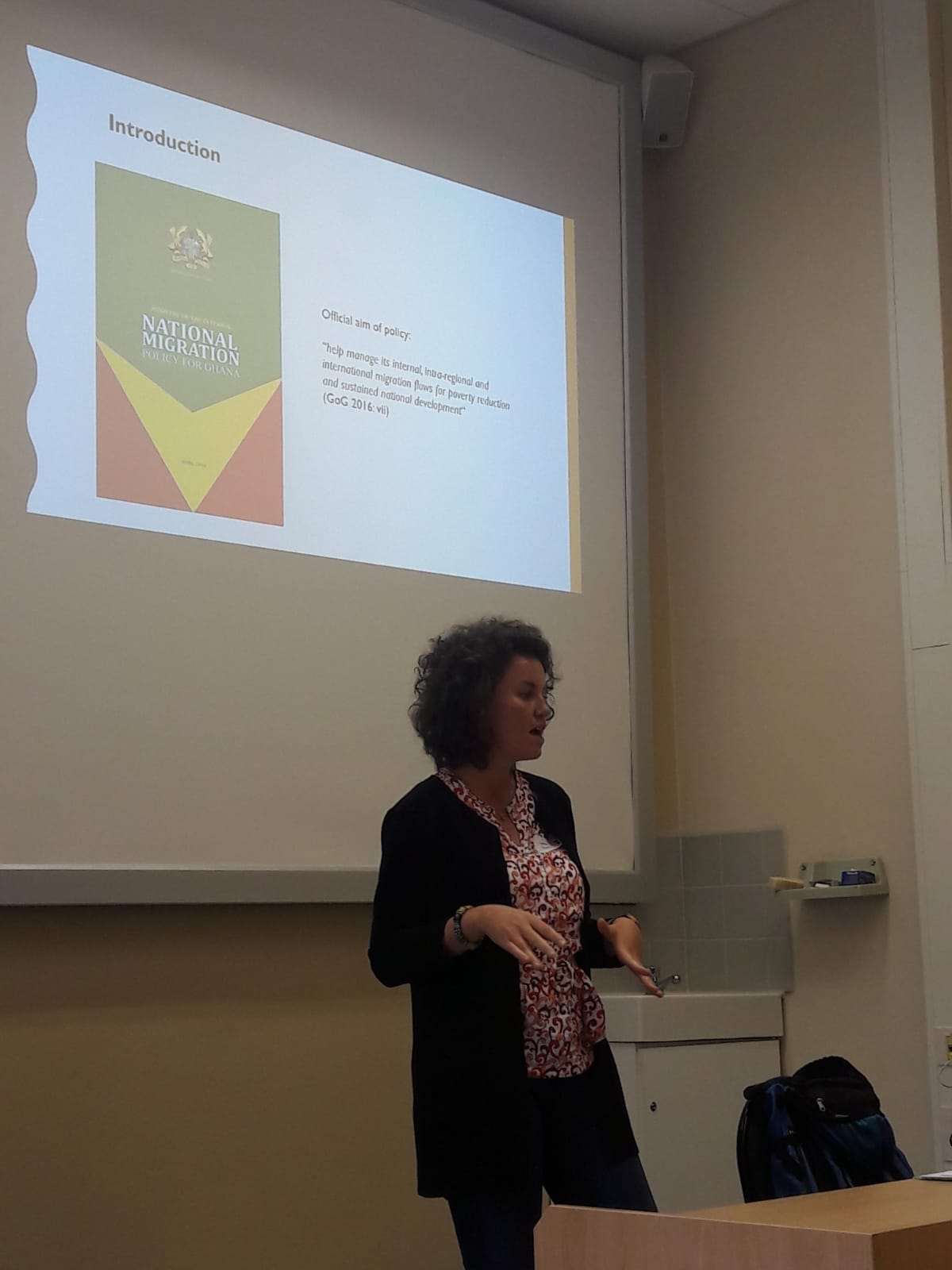Teilnehmerbeitrag zur ANSA-Konferenz 2018 von Nadine Segadlo
When we look at international migration from African countries to Europe, the European perspective in general and the German perspective in particular focuses largely on combating the root causes of migration and flight. Discussions evolve around the question how Europe/Germany could curb irregular migration and achieve African countries’ compliance on return and readmission. Following this debate, I asked myself why we are not looking at this issue from another angle and actually direct our attention to what countries of origin on the African continent do to deal with migration in their states.
I found that in West Africa, the regional organisation ECOWAS (Economic Community of West African States) strongly promotes migration management, e.g. through a Common Approach on Migration. Additionally, Ghana, as one of the first ECOWAS member states, adopted a National Migration Policy (NMP) in 2016. It is an encompassing document looking at all forms of migration affecting the country. Ghana is a country of origin for migrants coming to Europe, but simultaneously also a destination country for migrants from the region.
How does Ghana deal with migration?
Although it seems that actors from the Global North, primarily the EU, set the tone in addressing migration in countries of origin – their focus can clearly be seen in curbing irregular migration to Europe – the case of Ghana raises questions: Was there a guiding influence from actors like the regional organisation ECOWAS? And which role did the Government of Ghana (GoG) itself have in the process of the formulation of its NMP? Consequently, I investigated the policy process that led to the development of the National Migration Policy for Ghana and identified the actors involved, their specific interests, what brings them together and how they interact.
During 14 weeks of field work in Ghana I conducted expert interviews with various stakeholders involved in the policy-making process leading to the NMP for Ghana. The main reason stakeholders engage in policy formulation is the degree of their interest and their available resources, which form the basis for their power.
More exchange and better communication
In my presentation at the ANSA conference, I especially focused on the implications of my findings for the migration debate. The research clearly shows that a different approach on migration management and governance in cooperation with countries in Africa is necessary. This approach needs an honest exchange of priorities between African and European states, public awareness and collaboration with civil society, better coordination of donor projects and a critical engagement with the meaning of migration in the society. The audience’s reaction supported this view and together we agreed that a critical discussion of interests and power in the international migration debate is inevitable.

Nadine Segadlo was born in Germany. She studied Politics and Public Administration in Konstanz and Pretoria and International Development Studies in Utrecht. She worked in Tanzania, South Africa and Ghana. After finishing her Masters, she is now looking for a job. She became an ANSA member in 2017.
